
Entertainment
-
 Greece introduces ‘MyCoast’ App to tackle beach violations
In an effort to enforce newly implemented stringent beach regulations, Greece has launched the ‘MyCoast’ app, empowering users to report beach violations effortlessly.03 May 2024Read More...
Greece introduces ‘MyCoast’ App to tackle beach violations
In an effort to enforce newly implemented stringent beach regulations, Greece has launched the ‘MyCoast’ app, empowering users to report beach violations effortlessly.03 May 2024Read More... -
 European Court of Human Rights rejects Kirkorov’s case against Lithuania entry ban
The European Court of Human Rights (ECtHR) has dismissed a complaint filed by Russian pop star Philipp Kirkorov against Lithuania's decision to bar his entry into the country.23 April 2024Read More...
European Court of Human Rights rejects Kirkorov’s case against Lithuania entry ban
The European Court of Human Rights (ECtHR) has dismissed a complaint filed by Russian pop star Philipp Kirkorov against Lithuania's decision to bar his entry into the country.23 April 2024Read More... -
 Risnjak National Park: Croatia's hidden gem wins Europe's top spot
Nestled within Croatia's picturesque Gorski Kotar region, Risnjak National Park emerges as a beacon of untouched beauty, earning recognition as one of Europe's premier destinations sans the23 April 2024Read More...
Risnjak National Park: Croatia's hidden gem wins Europe's top spot
Nestled within Croatia's picturesque Gorski Kotar region, Risnjak National Park emerges as a beacon of untouched beauty, earning recognition as one of Europe's premier destinations sans the23 April 2024Read More... -
 Swiss castles experience record visitor numbers
In 2023, the National Association of Swiss Castles witnessed a historic milestone, welcoming over 1.3 million visitors to its 28 castles. This achievement marks a new record for the organization,23 April 2024Read More...
Swiss castles experience record visitor numbers
In 2023, the National Association of Swiss Castles witnessed a historic milestone, welcoming over 1.3 million visitors to its 28 castles. This achievement marks a new record for the organization,23 April 2024Read More... -
 Underground surge: Belgium grapples with 2,214 illegal gambling websites
Research conducted by gambling analysis firm Yield Sec has unveiled a concerning trend in Belgium's online gambling landscape. According to their findings, a staggering 2,214 illegal gambling14 April 2024Read More...
Underground surge: Belgium grapples with 2,214 illegal gambling websites
Research conducted by gambling analysis firm Yield Sec has unveiled a concerning trend in Belgium's online gambling landscape. According to their findings, a staggering 2,214 illegal gambling14 April 2024Read More... -
 Flanders and Brussels Embrace Slow Art Day, inviting visitors to savor artistic experiences
On April 13th, several museums in Flanders and Brussels will once again host a variety of activities as part of Slow Art Day, an annual tradition aimed at encouraging a deeper12 April 2024Read More...
Flanders and Brussels Embrace Slow Art Day, inviting visitors to savor artistic experiences
On April 13th, several museums in Flanders and Brussels will once again host a variety of activities as part of Slow Art Day, an annual tradition aimed at encouraging a deeper12 April 2024Read More... -
 4 Croatian beaches named Europe’s best
As Croatia gears up for what promises to be its most spectacular summer season yet, the BookRetreats Summer 2024 Report has officially unveiled the top beaches across Europe, catering to10 April 2024Read More...
4 Croatian beaches named Europe’s best
As Croatia gears up for what promises to be its most spectacular summer season yet, the BookRetreats Summer 2024 Report has officially unveiled the top beaches across Europe, catering to10 April 2024Read More...
News
-
 Belgian Princess Elisabeth sets course for Harvard
The Belgian Royal Court has confirmed that Princess Elisabeth, the heir to the throne, will pursue her education at Harvard University in Boston, marking a significant step in herRead More...
Belgian Princess Elisabeth sets course for Harvard
The Belgian Royal Court has confirmed that Princess Elisabeth, the heir to the throne, will pursue her education at Harvard University in Boston, marking a significant step in herRead More... -
 Education unions initiate series of strikes across Flanders
Education unions ACOD Education, COC, and VSOA Education are set to organize demonstrations across five Flemish cities in May as part of a series of strikes. The unions' discontent stemsRead More...
Education unions initiate series of strikes across Flanders
Education unions ACOD Education, COC, and VSOA Education are set to organize demonstrations across five Flemish cities in May as part of a series of strikes. The unions' discontent stemsRead More... -
 Algerian nationals can now be detained prior to deportation, court decides
The highest Dutch court ruled on Monday that Algerian nationals whose asylum requests have been rejected can once again be detained pending their deportation.Read More...
Algerian nationals can now be detained prior to deportation, court decides
The highest Dutch court ruled on Monday that Algerian nationals whose asylum requests have been rejected can once again be detained pending their deportation.Read More... -
 Transfers of asylum seekers to other EU member states increasing
Belgium transferred 1,241 asylum seekers to another European Union member state last year, where they already had a pending procedure. The number of transfers by Belgium has been onRead More...
Transfers of asylum seekers to other EU member states increasing
Belgium transferred 1,241 asylum seekers to another European Union member state last year, where they already had a pending procedure. The number of transfers by Belgium has been onRead More... -
 Polish cheesecake ranked as world's No.1
Polish ‘sernik’ has claimed the top spot on the list of the Top 8 cheesecakes in the world. Cheesecake. Cheesecake. Photo: PAP/Darek Delmanowicz According to TasteAtlas, which curated theRead More...
Polish cheesecake ranked as world's No.1
Polish ‘sernik’ has claimed the top spot on the list of the Top 8 cheesecakes in the world. Cheesecake. Cheesecake. Photo: PAP/Darek Delmanowicz According to TasteAtlas, which curated theRead More... -
 Wealthy family to clear debts for 3,000 Rotterdam families, mirroring Arnhem's initiative
Following Arnhem's announcement to absolve debts for around 50 households in Immerloo, recognized as the most financially distressed area in the Netherlands, a Rotterdam-based family,Read More...
Wealthy family to clear debts for 3,000 Rotterdam families, mirroring Arnhem's initiative
Following Arnhem's announcement to absolve debts for around 50 households in Immerloo, recognized as the most financially distressed area in the Netherlands, a Rotterdam-based family,Read More... -
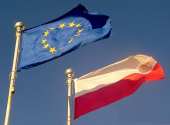 'Good to be together': celebrating 20 years of Poland in the EU
Poland's government has initiated a special social and informational campaign titled "Good to Be Together: 20 Years of Poland in the European Union," marking a significant milestone in theRead More...
'Good to be together': celebrating 20 years of Poland in the EU
Poland's government has initiated a special social and informational campaign titled "Good to Be Together: 20 Years of Poland in the European Union," marking a significant milestone in theRead More... -
 ÖBB unveils Summer Train Timetable with construction updates
As summer approaches, Austria's ÖBB gears up for extensive construction activities in the eastern region, leading to adjustments in train schedules along certain routes.Read More...
ÖBB unveils Summer Train Timetable with construction updates
As summer approaches, Austria's ÖBB gears up for extensive construction activities in the eastern region, leading to adjustments in train schedules along certain routes.Read More... -
 Rare book theft: Europol cracks down on international gang
In a collaborative effort involving European law enforcement agencies, Europol successfully apprehended four suspected individuals involved in the theft of antique and rare books.Read More...
Rare book theft: Europol cracks down on international gang
In a collaborative effort involving European law enforcement agencies, Europol successfully apprehended four suspected individuals involved in the theft of antique and rare books.Read More...

Most Read
- Teen held after US woman killed in London stabbings
- Football: Farhad Moshiri adamant Everton deal above board
- Greece hails new post-bailout chapter but concerns remain
- The Kokorev case caused wide discussion in Brussels
- EU accession talks stir debate in Moldova: insights from Gagauzia's leader, Yevgenia Gutsul
Politics
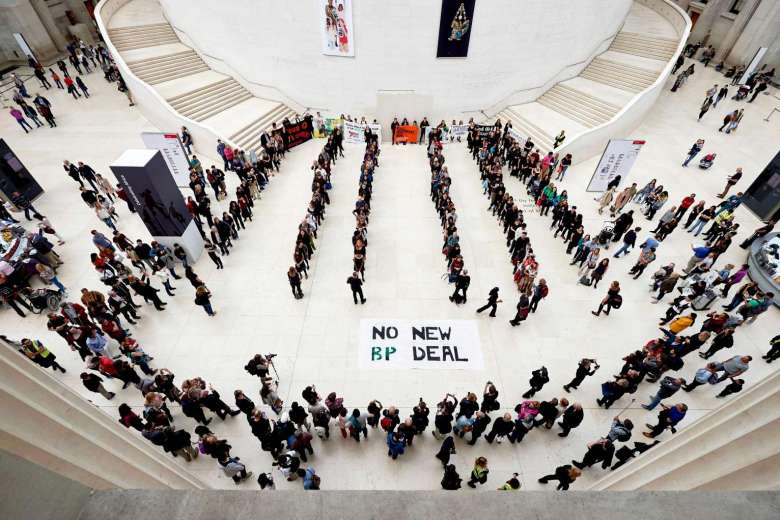
Activists staged a demonstration inside one of London's biggest museums on Sunday (April 3) in protest at its sponsorship links with energy giant BP.
A 20-strong group of activists held what they called a "disobedient exhibition" inside the British Museum in central London.
The mock exhibition was entitled "A History of BP in 10 Objects", a play on "A History of the World in 100 Objects", a recent British Museum show."It features objects sent from all over the world by communities impacted by BP's environmental destruction and human rights abuses, including crude oil from the Gulf Coast spill," the activists said in a statement.
They claimed BP's support - largely focused on special exhibitions - represented 0.8 per cent of the central London museum's annual income.
Last September, the self-styled "theatrical campaign group", named "BP Or Not BP?", held a similar protest inside the museum with demonstrators dressed in black to resemble an oil slick, forming the word "No".
The new protest came as 91 figures including actors Emma Thompson and Mark Rylance, fashion designer Vivienne Westwood and campaigner Bianca Jagger signed a letter to the Guardian newspaper about the issue.
They urged the museum's new director, Hartwig Fischer, who takes up his post on Monday, not to renew BP's sponsorship deal and instead "seek funding from sources more in line with the museum's values".
The British Museum, which has free admission except for special exhibitions, attracts seven million visitors each year.

Cunning gentleman thieves have seduced romantics from the days of Robin Hood through to Hollywood's heyday - and now London is transfixed by the real-life antics of the "Wimbledon Prowler".
The prolific burglar is suspected of carrying out hundreds of break-ins around one of London's most exclusive neighbourhoods, making off with assets worth more than £10 million (S$19.2 million).
The quaint, upscale neighbourhood of Wimbledon Village in the British capital's smart southwest is sheltered from the hustle of city life, and known mainly for its famous tennis tournament and multimillion-pound mansions.
But fear now stalks the leafy streets in the form of the "Wimbledon Prowler", as the light-fingered criminal has been nicknamed by the British press.
In a decade of deception, the thief has committed more than 200 burglaries, making mockeries of locks, alarms and security camera systems to pilfer luxury watches, jewellery and cash, detective inspector Dan O'Sullivan told AFP.
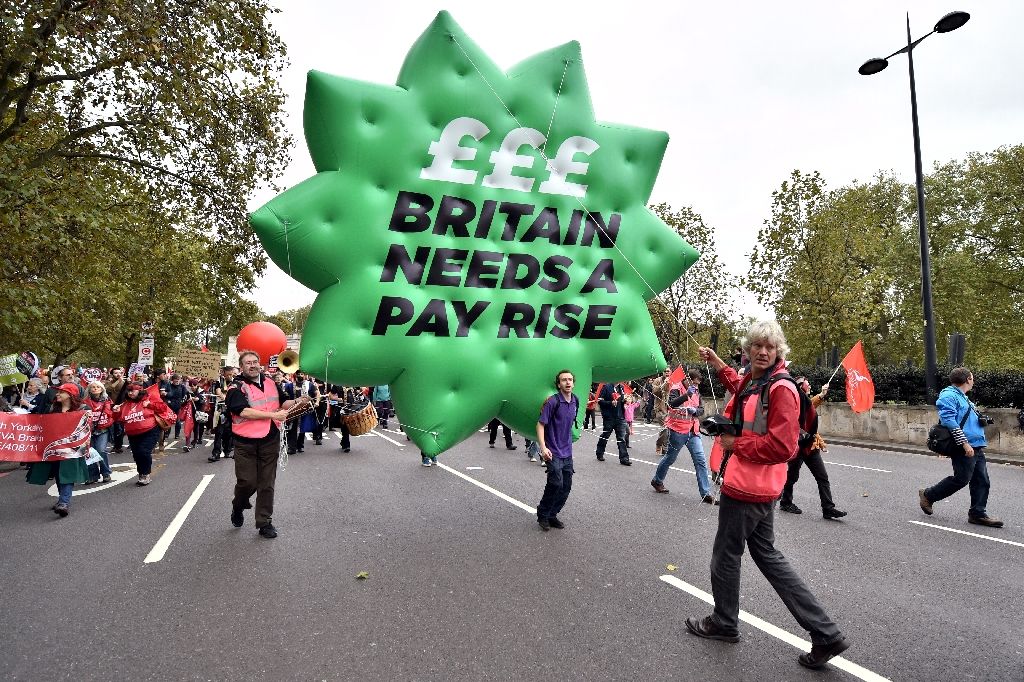
Britain's Conservative government raised the minimum wage that is pocketed by more than a million people Friday, trumpeting it as a transformative step for the economy but winning few plaudits from employers or austerity-weary unions.
Affecting between 1.3 million and 1.8 million people according to varying estimates, the minimum gross salary for all British workers aged over 25 climbed by 7.5 percent to £7.20 ($10.36, 9.10 euros) an hour as of April 1, a pay boost that far outstrips inflation.
The pay rise, first announced by Prime Minister David Cameron's government last July, represents a complete about-turn for the Conservative party, which opposed the introduction of the minimum wage in 1999 when then prime minister Tony Blair's Labour was in power.
"The National Living Wage will play a central role in moving Britain to a higher wage, lower tax, lower welfare economy," British finance minister George Osborne said as the pay boost came into effect.
"It will also mark the end of the gender pay gap for some of our lowest paid and hardest working people."
The opposition Labour party criticised the policy as a "cruel sleight of hand", however, pointing to the government's enactment of sharp cutbacks in welfare spending.
- Stagnant wage growth -
Other nations, too, have raised minimum wages in recent years to address stagnant wage growth and inequality between rich and poor.
France lifted the minimum wage at the start of this year to almost 9.70 euros an hour.
Germany launched a minimum wage one year earlier at 8.50 euros, where it remains.
And in the United States, California plans to raise the pre-tax minimum wage to $15 per hour (13.28 euros) in a move which might be followed by other US states.
In Britain, where unemployment is relatively low at around 5.0 percent, large wage inequalities persist and London School of Economics professor Alan Manning described the new living wage as "more symbolic" than anything else.
"It's significant but I don't think one should exaggerate its significance," he told AFP.
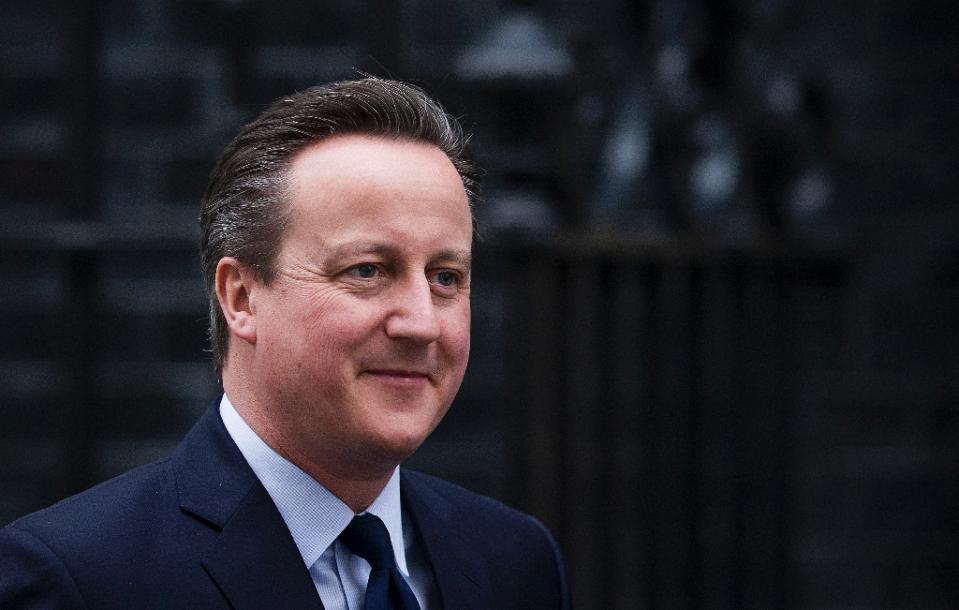
Britain will team up with the United States and European partners to exchange its nuclear waste for material to be used in the fight against cancer, Prime Minister David Cameron will announce Thursday.
The British leader is expected to unveil the plan at a two-day international summit in Washington, beginning Thursday, aimed at ensuring that nuclear material in the world's roughly 1,000 atomic facilities is secured.
The deal will see Britain send waste from nuclear facilities in Scotland for processing in US reactors in the "largest-ever movement of highly-enriched uranium out of the UK," according to a British government source.
In exchange, the US will send uranium for use in reactors in the European Atomic Energy Community (Euratom).
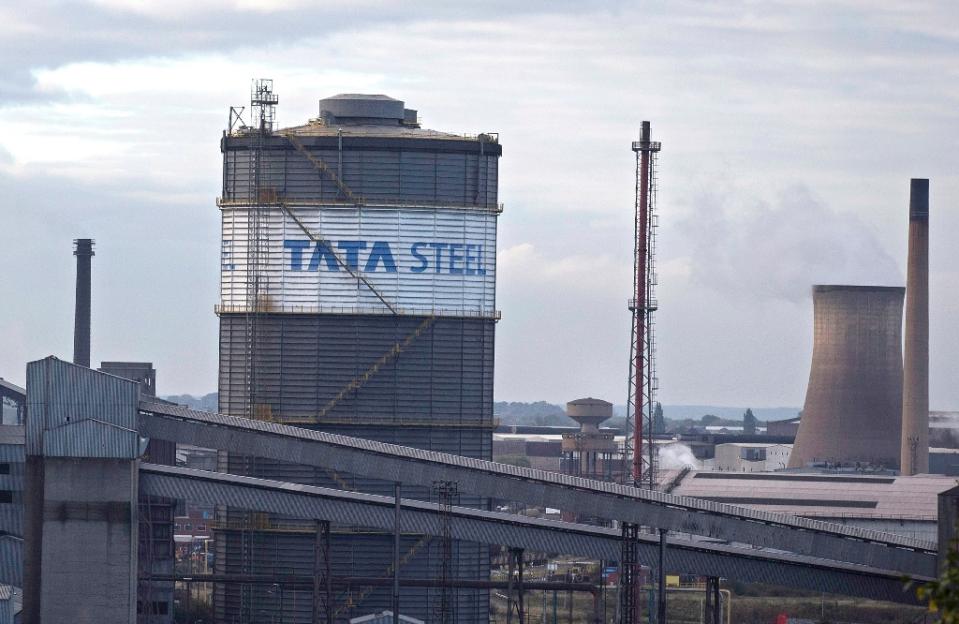
Indian steel giant Tata Steel on Wednesday put its British business up for sale, placing thousands of jobs at risk and striking a heavy blow to the crisis-hit steel industry.
Tata said in a statement that trading conditions had "rapidly deteriorated" in Britain and Europe due to a global oversupply of steel, a "significant increase" in cheaper imports into Europe, weak domestic demand, high costs and currency volatility.
"These factors are likely to continue into the future and have significantly impacted the long term competitive position of the UK operations," read the statement issued in Mumbai.
The company's European arm Tata Steel Europe will now "explore all options for portfolio restructuring including the potential divestment of Tata Steel UK, in whole or in parts" -- including Britain's biggest steel plant at Port Talbot in Wales.
"Given the severity of the funding requirement in the foreseeable future, the Tata Steel Europe board will be advised to evaluate and implement the most feasible option in a time-bound manner," it said.
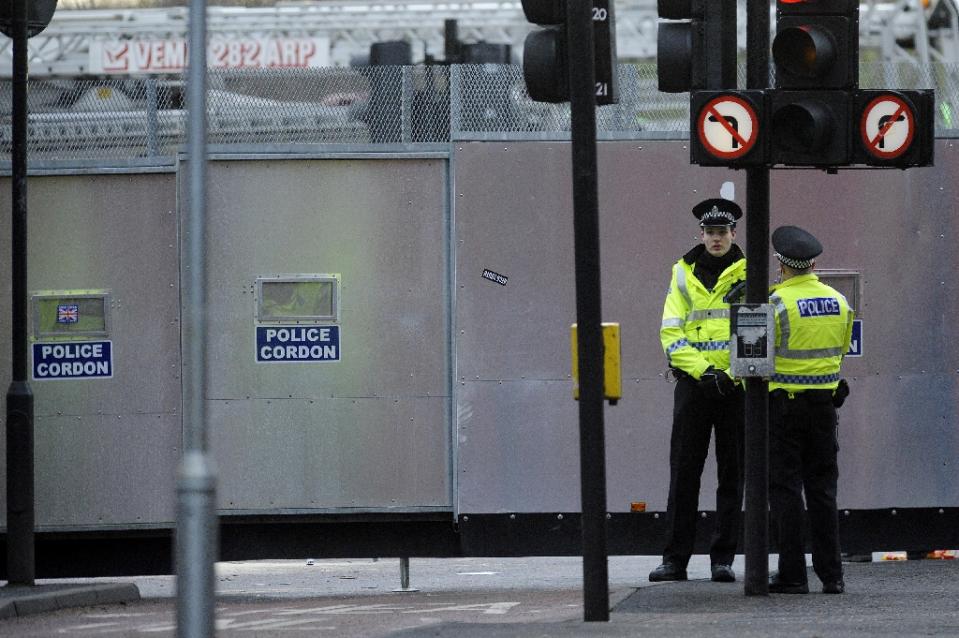
Tributes were paid to a Muslim shopkeeper killed in what police described as a "religiously prejudiced" attack, as a Muslim suspect remained in custody.
Asad Shah, 40, died after being found with serious injuries outside his shop in Glasgow on Thursday evening.
He was believed to be a member of the minority Ahmadi Muslim community, and media reports said he was originally from Pakistan.
Police arrested a 32-year-old Muslim man on Friday, and a spokeswoman said: "A full investigation is underway to establish the full circumstances surrounding the death which is being treated as religiously prejudiced."
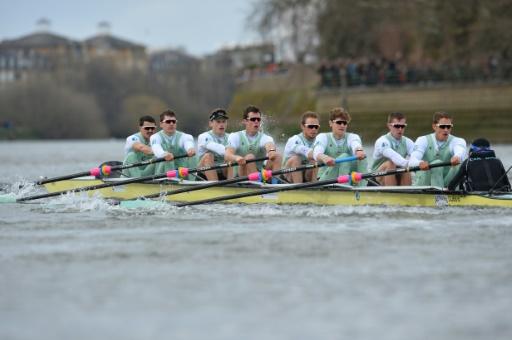
Cambridge ended a run of three straight defeats by Oxford with victory in the 162nd edition of the University Boat Race in London on Saturday.
The heavier and more experienced crew, Cambridge were the favourites for this year's renewal on the 4 miles, 374 yards (6.8 km) course between Putney and Mortlake on the River Thames.
Victory saw the Light Blues extend their overall lead in a race first run in 1829 to 82 wins to 79.
On a day when rough water had played havoc with the preceding women's race, Cambridge were ahead almost from the start and although Oxford hung on grimly they never looked at any stage as if they would overtake their ancient rivals in this latest contest between England's two oldest universities.
Cambridge, who won the toss, had the early advantage of the Surrey bend in their favour were sufficiently far ahead of the Dark Blues to make it across to the safety of the Middlesex riverbank in increasingly choppy water.
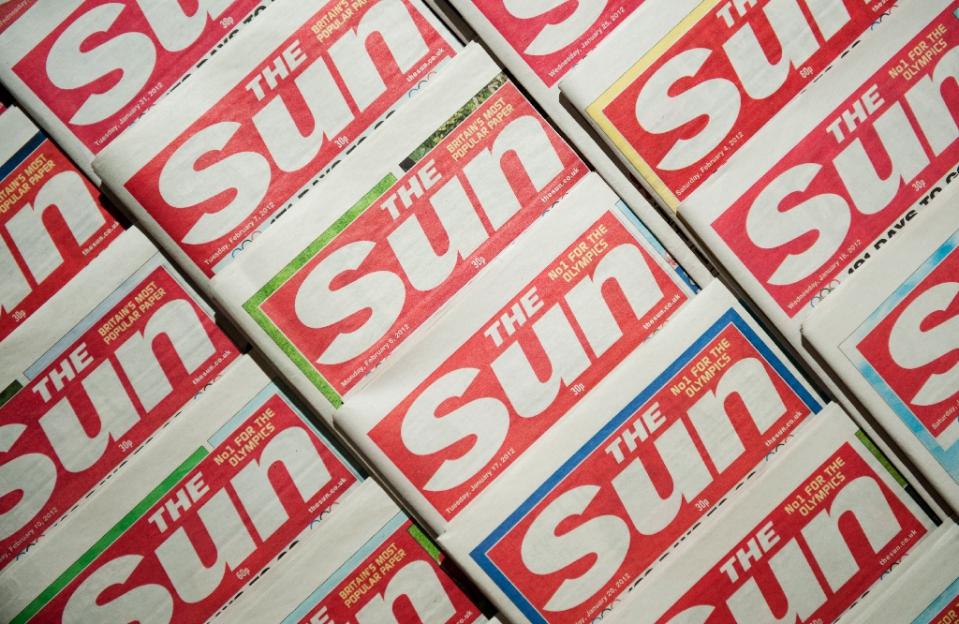
Britain's press regulator on Saturday censured Rupert Murdoch's The Sun tabloid for a "significantly misleading" story claiming one in five British Muslims sympathise with jihadist fighters.
The ruling on the front-page story from November comes amid heightened community tensions following the Brussels attacks this week claimed by the Islamic State group, which left 31 people dead.
The mass-selling daily claimed an exclusive poll revealed "1 in 5 Brit Muslims' sympathy for jihadis", and published a picture of Mohammed Emwazi, the British IS executioner known as Jihadi John, alongside the shock headline.
The story generated more than 3,000 complaints to the Independent Press Standards Organisation (IPSO), most of them challenging the coverage on the grounds of accuracy.
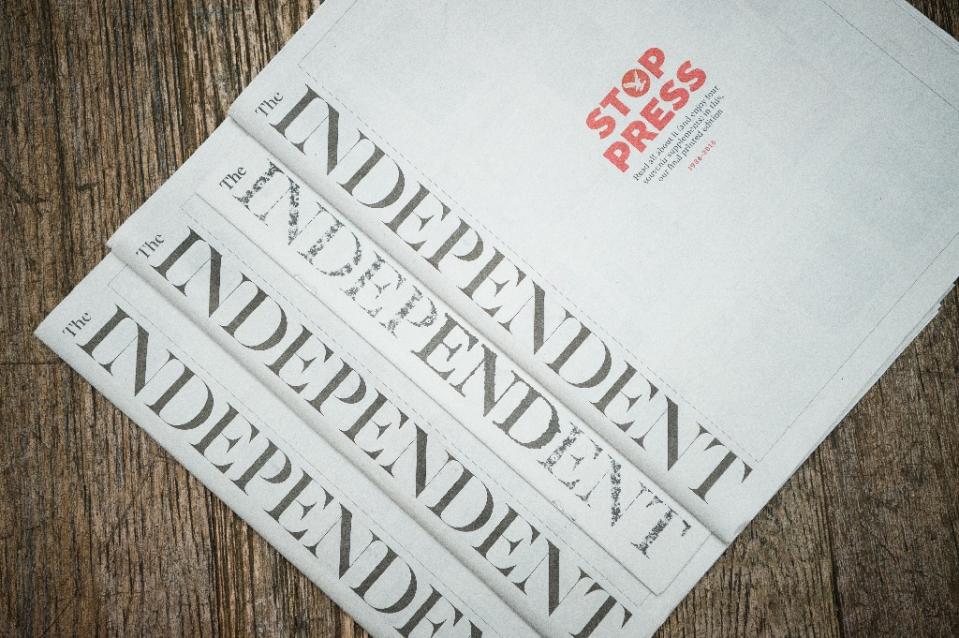
The final print edition of The Independent newspaper went on sale Saturday, ending its 30-year appearance on British newsstands with an exclusive on an assassination plot against a former Saudi king.
A poignant wrap-around front page carried the words "STOP PRESS" in red lettering on a white background, followed by the words "Read all about it in this, our final print edition - 1986- 2016".
The newspaper will now be available online only, with its final editorial claiming history would be the judge of its "bold transition....as an example for other newspapers around the world to follow".
In its final front-page exclusive, the "Indy" reported that British-based dissident Mohammed al-Massari was being pursued through the courts over a plot ordered by former Libyan leader Moamer Kadhafi to assassinate Saudi king Abdullah.
Journalists earlier posted footage online of the team "banging ourselves out" -- an old tradition of banging the desks to mark the departure of a colleague.
"Today the presses have stopped, the ink is dry and the paper will soon crinkle no more," it said.
"But as one chapter closes, another opens, and the spirit of The Independent will flourish still."
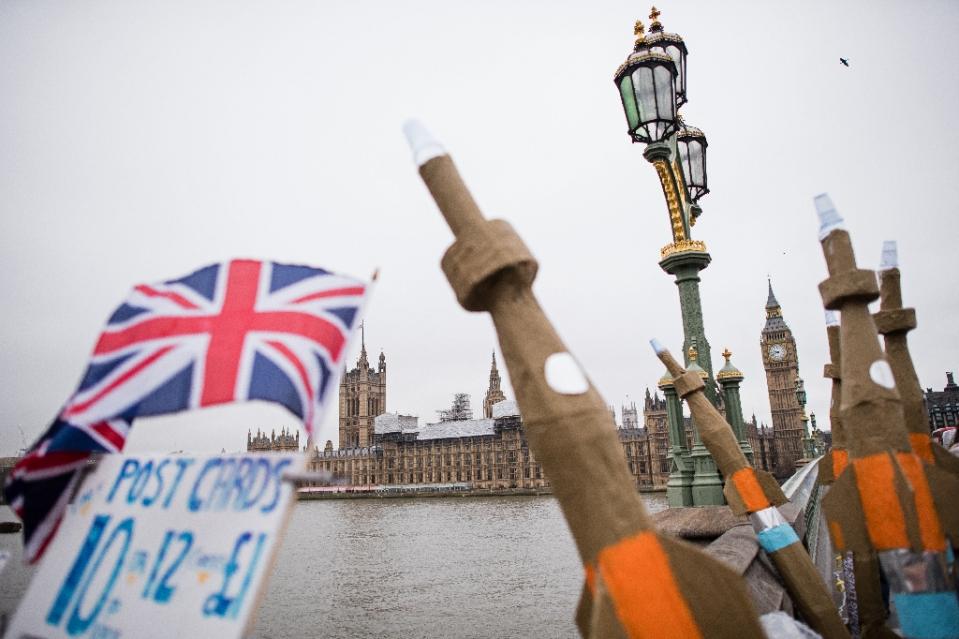
Amnesty on Tuesday urged Washington and London to halt arms deliveries to Saudi Arabia, which is leading a military coalition against rebels in Yemen, for the sake of saving civilian lives.
In a statement released one year into the Saudi-led intervention and titled "Reckless arms flows decimate civilian lives," the rights watchdog urged the two Western powers and other states to "halt all transfers of arms for use in the Yemen conflict".
"Saudi Arabiaâs international partners have added fuel to the fire, flooding the region with arms despite the mounting evidence that such weaponry has facilitated appalling crimes and the clear risk that new supplies could be used for serious violations," said James Lynch, Amnesty International's regional deputy director.
Amnesty said that Washington and London, the largest arms suppliers to Saudi Arabia, "have continued to allow transfers of the type of arms that have been used to commit and facilitate serious abuses, generating a humanitarian crisis on an unprecedented scale."

















